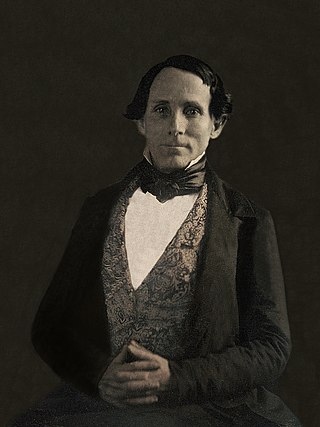
Henry Stuart Foote was a United States Senator from Mississippi and the chairman of the United States Senate Committee on Foreign Relations from 1847 to 1852. He was the Unionist Governor of Mississippi from 1852 to 1854.
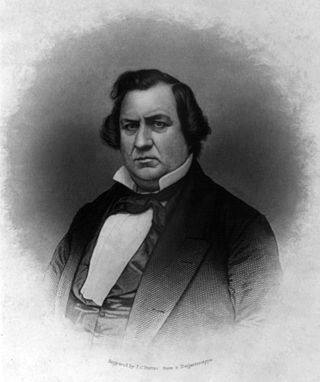
Herschel Vespasian Johnson was an American politician. He was the 41st Governor of Georgia from 1853 to 1857 and the vice presidential nominee of the Douglas wing of the Democratic Party in the 1860 U.S. presidential election. He also served as one of Georgia's Confederate States senators.

George Smith Houston was an American Democratic politician who was the 24th Governor of Alabama from 1874 to 1878. He was also a congressman and senator for Alabama.

James Lawrence Pugh was an American politician and attorney who was a U.S. senator from Alabama from 1880 to 1897, as well as a member of the Confederate Congress during the American Civil War.

Robert Looney Caruthers was an American judge, politician, and professor. He helped establish Cumberland University in 1842, serving as the first president of its board of trustees, and was a cofounder of the Cumberland School of Law, one of the oldest law schools in the South. He served as a Tennessee state attorney general in the late 1820s and early 1830s, and was a justice of the Tennessee Supreme Court in the 1850s and early 1860s. He also served one term in the United States House of Representatives (1841–1843). In 1863, he was elected Governor of Tennessee by the state's Confederates, but never took office.
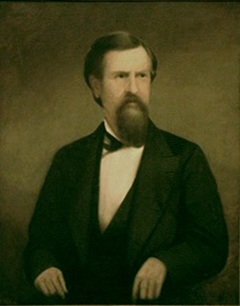
James Davis Porter was an American attorney, politician, educator, and officer of the Confederate Army. He served as the 20th Governor of Tennessee from 1875 to 1879. He was subsequently appointed as Assistant Secretary of State during President Grover Cleveland's first administration, and Minister to Chile in Cleveland's second administration.

Albert Smith Marks was an American attorney, soldier and politician. He was the 21st governor of Tennessee from 1879 to 1881. Prior to that, he had served as a state chancery court judge. Marks fought for the Confederacy during the Civil War, and part of his leg was amputated as a result of a wound suffered at the Battle of Stones River in 1862.
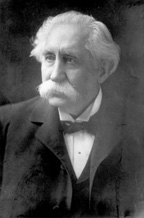
William Brimage Bate was a planter and slaveholder, Confederate officer, and politician in Tennessee. After the Reconstruction era, he served as the 23rd governor of Tennessee from 1883 to 1887. He was elected to the United States Senate from Tennessee, serving from 1887 until his death.
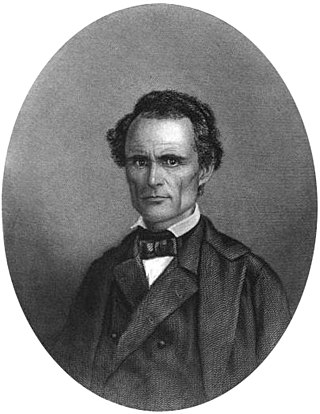
West Hughes Humphreys was the 3rd Attorney General of Tennessee and a United States district judge of the United States District Court for the Eastern District of Tennessee, the United States District Court for the Middle District of Tennessee, and the United States District Court for the Western District of Tennessee.
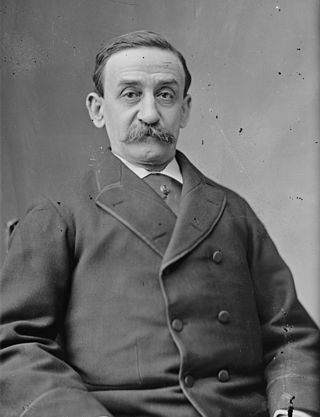
Benjamin Franklin Jonas was an American politician who was a Democratic U.S. Senator from Louisiana and an officer in the Confederate States Army during the American Civil War. He was the third Jew to serve in the Senate. Jonas was also the last Jewish Senator from the Deep South until Jon Ossoff won his seat in Georgia in 2021.

William Andrew Quarles was a Tennessee lawyer, politician, railroad executive, and a general in the Confederate States Army during the American Civil War.
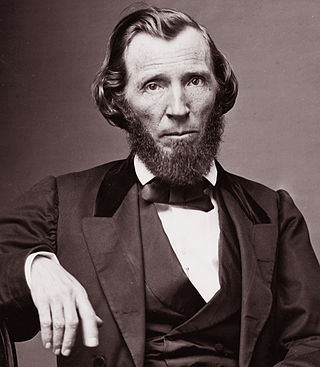
Martin Jenkins Crawford was an antebellum U.S. Representative and a representative to the Provisional Confederate Congress during the American Civil War from the state of Georgia.

John Thomas Harris was a nineteenth-century politician, lawyer and judge from Virginia. He was often referred to after the American Civil War as "Judge Harris", even after his election to Congress. He was the first cousin of John Hill.

Alfred Burton Greenwood was an American attorney, judge, and a politician who served three terms in the U.S. House of Representatives from 1853 to 1859. When Arkansas seceded from the Union in the Civil War, he was elected to the Confederate Congress as a Democrat. In between, he served under President James Buchanan as Commissioner of Indian Affairs.

Albert Cornelius Baker was an American jurist and politician who was the only person to serve on both the Arizona Territorial Supreme Court and the Arizona Supreme Court. As a judge he served four years as Chief Justice of the Supreme Court of Arizona Territory and two-and-a-half years as a justice of the Arizona Supreme Court. Politically he was a member of the Arizona Territorial Legislature and a delegate to Arizona's constitutional convention.

Duncan Kirkland McRae was an American politician from North Carolina. After studying law, he served as attorney, diplomat and state legislator. He was an officer in the Confederate States Army during the American Civil War, the wounds received in it complicating his later life. McRae was also a newspaper editor.
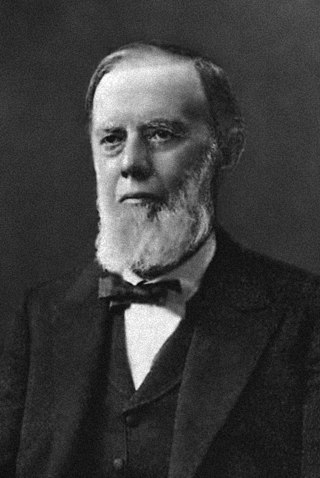
Edwin Maxwell was an American lawyer, judge, and politician in the U.S. state of West Virginia. Maxwell served as Attorney General of West Virginia in 1866 and was an associate justice of the Supreme Court of Appeals of West Virginia from 1867 until 1872. He was elected to the West Virginia Senate and the West Virginia House of Delegates.
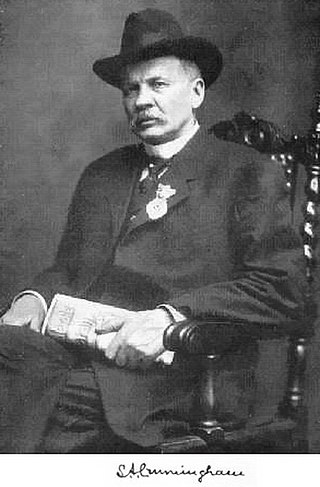
Sumner Archibald Cunningham was an American Confederate soldier and journalist. He was the editor of a short lived Confederate magazine called "Our Day" (1883-1884) published in New York. In 1893 he established the Confederate Veteran, a bimonthly magazine about veterans of the Confederate States Army until his death in 1913. He was a critic of Reconstruction, "scalawags", "carpetbaggers", and "Negro" legislators.

William Allen Montgomery was an American lawyer, planter and Baptist minister. Trained as a lawyer in Tennessee, he was a cotton planter in Texas in the 1850s and served as a Confederate chaplain in the American Civil War. He served as the President of Carson–Newman University from 1888 to 1892.
Edgar Bright Wilson (1874–1953) was an American lawyer and politician. He served as the Speaker of the Tennessee House of Representatives from 1901 to 1903.



















